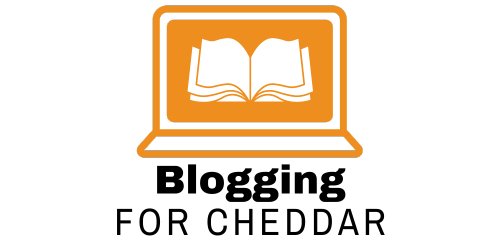If you’re a blogger looking to expand your skillset and take your writing to the next level, you’ve come to the right place. In this article, we’ll be exploring some of the top online courses available for bloggers. Whether you’re a beginner looking to learn the basics or a seasoned pro looking to refine your craft, these courses offer valuable insights, practical tips, and expert advice to help you succeed in the competitive world of blogging. So, get ready to enhance your writing skills and unlock new opportunities as we delve into the top online courses for bloggers.

Content Creation
Copywriting
Copywriting is a crucial skill for any blogger. It’s all about creating compelling and persuasive content that captures your readers’ attention and keeps them engaged. By mastering the art of copywriting, you can effectively communicate your ideas, build your brand, and drive more traffic to your blog. Online courses on copywriting can teach you techniques to craft attention-grabbing headlines, write engaging blog posts, and create compelling calls-to-action that encourage your readers to take the desired action.
Content Strategy
Creating valuable and informative content is not enough; you need a well-defined content strategy to ensure your efforts are targeted and effective. A content strategy helps you identify your target audience, understand their needs, and create content that resonates with them. It involves planning, organizing, and scheduling your content to ensure consistent quality and frequency. Online courses on content strategy can guide you in developing a content calendar, conducting audience research, and creating a strategy that aligns with your blogging goals.
Visual Content Creation
In today’s visually-driven online world, incorporating visual content in your blog is essential. Images, videos, infographics, and other visual elements can make your blog more engaging, memorable, and shareable. Online courses on visual content creation can teach you how to create eye-catching graphics, edit videos, and design compelling visual storytelling pieces. Learning these skills can help you turn your blog into a visually appealing platform that captivates your audience and enhances your brand image.
SEO and Blog Optimization
Keyword Research
Keyword research is the foundation of successful SEO (Search Engine Optimization). By identifying and targeting the right keywords, you can optimize your blog content for search engines and increase your visibility in search results. Online courses on keyword research can teach you techniques to find relevant keywords, analyze their search volume and competition, and strategically incorporate them into your blog posts. Mastering this skill can significantly improve your blog’s organic traffic and enhance your online presence.
On-Page SEO
On-page SEO refers to optimizing elements within your blog posts to improve their visibility in search engine results. This includes optimizing meta tags, headings, URLs, and content structure. Understanding on-page SEO techniques can help you create blog posts that are well-structured, keyword-rich, and easily indexable by search engines. Online courses on on-page SEO can guide you in implementing best practices to improve your blog’s search engine ranking and drive targeted organic traffic to your content.
Link Building
Link building plays a crucial role in improving your blog’s credibility and authority in the eyes of search engines. By acquiring high-quality backlinks from reputable websites, you can enhance your blog’s visibility and reputation. Online courses on link building can teach you effective strategies to attract backlinks, such as guest blogging, creating valuable content, and leveraging social media. Learning how to build a strong network of backlinks can significantly boost your blog’s search engine ranking and attract more organic traffic.
Blogging Platforms
WordPress
WordPress is one of the most popular and versatile blogging platforms available. It offers a wide range of features and customization options, making it ideal for bloggers of all levels of experience. Online courses on WordPress can teach you everything from setting up your blog to customizing themes, installing plugins, and optimizing for SEO. Whether you’re a beginner or an experienced blogger, learning how to navigate and utilize WordPress can greatly enhance your blogging experience.
Blogger
Blogger, owned by Google, is a simple and user-friendly blogging platform that is perfect for beginners. It offers a straightforward interface and requires minimal technical expertise. Online courses on Blogger can guide you through the process of setting up a blog, customizing the design, and optimizing for SEO. If you’re new to blogging and want a hassle-free platform to kickstart your journey, learning how to use Blogger can be a great option.
Wix
Wix is a popular website builder that also offers a blogging platform. It provides a drag-and-drop interface and a wide variety of customizable templates, making it easy for beginners to create visually appealing blogs. Online courses on Wix can teach you how to set up a blog, customize the design, and optimize it for search engines. If you’re looking for a user-friendly platform that combines website building and blogging capabilities, learning how to use Wix can be a valuable skill.
Social Media Marketing for Bloggers
Facebook Marketing
Facebook is one of the largest social media platforms, providing an enormous potential audience for bloggers. Effective Facebook marketing strategies can help you reach a wider audience, increase blog traffic, and engage with your readers. Online courses on Facebook marketing can teach you techniques to create engaging posts, run targeted advertising campaigns, and leverage Facebook groups and communities. Learning how to effectively utilize Facebook can significantly enhance your blog’s social media presence and marketing efforts.
Instagram Marketing
Instagram is a visual-centric platform that is perfect for bloggers who focus on creating eye-catching content. With the right Instagram marketing strategies, you can showcase your blog’s aesthetics, gain followers, and drive more traffic to your website. Online courses on Instagram marketing can guide you in developing a consistent visual style, utilizing hashtags, creating engaging captions, and collaborating with influencers. Learning how to harness Instagram’s features can elevate your blog’s online visibility and broaden your reach.
Pinterest Marketing
Pinterest is a unique social media platform that functions more like a search engine. It allows users to discover and save visual content, making it an excellent platform for bloggers to share their content and drive traffic. Online courses on Pinterest marketing can teach you how to optimize your blog posts for Pinterest, create eye-catching pins, and leverage group boards and Pinterest SEO. By incorporating effective Pinterest marketing strategies, you can tap into a vast audience and attract targeted traffic to your blog.

Email Marketing for Bloggers
Building an Email List
Building an email list is crucial for maintaining a strong relationship with your readers and driving repeat traffic to your blog. By collecting email addresses and nurturing your subscribers, you can establish a loyal community and keep your readers engaged with your content. Online courses on building an email list can guide you in creating compelling lead magnets, designing opt-in forms, and implementing strategies for attracting subscribers. Understanding the fundamentals of email list building can help you cultivate a dedicated audience that eagerly awaits your blog updates.
Creating Effective Email Campaigns
Once you have an email list, it’s important to know how to create and execute effective email campaigns. Online courses on email marketing can teach you how to write engaging emails, segment your subscribers, automate your campaigns, and track their performance. By mastering email marketing techniques, you can strengthen the bond with your readers, drive traffic to your blog, and monetize your email list effectively.
Email Marketing Tools
There are various email marketing tools available that can help you streamline your email campaigns and maximize their impact. Online courses on email marketing tools can introduce you to popular platforms like Mailchimp, ConvertKit, and Constant Contact. These courses can guide you in understanding the features of each tool and selecting the one that aligns with your blogging goals and budget. Utilizing efficient email marketing tools can simplify the process of managing your email list and executing successful campaigns.
Monetizing Your Blog
Affiliate Marketing
Affiliate marketing is a popular monetization strategy for bloggers. By partnering with affiliate programs and promoting products or services, you can earn commissions for every sale or referral generated through your blog. Online courses on affiliate marketing can teach you how to choose the right affiliate programs, incorporate affiliate links into your content, and optimize your strategies for maximum conversions. Learning how to effectively monetize your blog through affiliate marketing can provide a consistent income stream and reward you for your valuable content.
Sponsored Content
Sponsored content involves collaborating with brands or businesses to promote their products or services on your blog. This can include writing sponsored blog posts, featuring sponsored ads, or creating sponsored social media content. Online courses on sponsored content can guide you in understanding industry standards, negotiating deals, and maintaining authenticity while promoting sponsored content. By incorporating sponsored content effectively and ethically, you can monetize your blog and build mutually beneficial relationships with brands.
Creating and Selling Digital Products
Creating and selling digital products is an excellent way to monetize your expertise and provide value to your readers. This could include e-books, online courses, templates, or any other form of digital content. Online courses on creating and selling digital products can teach you how to identify profitable niches, develop your products, create sales funnels, and market them effectively. By leveraging your knowledge and skills, you can diversify your blog’s income streams and establish yourself as an authority in your niche.

Analytics and Performance Tracking
Google Analytics
Google Analytics is a powerful tool that provides insights into your blog’s performance, audience behavior, and marketing effectiveness. By understanding key metrics and data, you can make informed decisions to improve your blog’s performance and grow your audience. Online courses on Google Analytics can help you navigate the platform, set up customized reports, and interpret the data to optimize your blog’s performance. Mastering Google Analytics can provide valuable insights that drive continuous improvement and success for your blog.
Monitoring Website Traffic
Monitoring your blog’s website traffic is essential to understand how your content is performing and to identify opportunities for improvement. Online courses on website traffic monitoring can introduce you to various tools and techniques to track and analyze your blog’s traffic. These courses can teach you how to identify your most popular content, evaluate user engagement, and identify areas for optimization. By continuously monitoring your website traffic, you can make data-driven decisions to enhance your blog’s performance and reach.
Conversion Tracking
Understanding your blog’s conversion rates is crucial for measuring the effectiveness of your marketing campaigns and monetization strategies. Online courses on conversion tracking can teach you how to set up and track conversions using tools like Google Analytics and Facebook Ads Manager. Learning how to effectively monitor and measure conversions can help you optimize your marketing efforts, refine your monetization strategies, and maximize your blog’s revenue potential.
Building a Strong Online Presence
Personal Branding
Building a strong personal brand is essential for bloggers to stand out in a crowded online space. It involves establishing yourself as an expert in your niche, cultivating a unique identity, and consistently delivering valuable content that resonates with your target audience. Online courses on personal branding can guide you in crafting your brand story, developing your brand voice, and creating a cohesive brand image across your blog and social media channels. By investing in personal branding, you can build trust, attract a dedicated following, and establish yourself as a go-to resource in your niche.
Guest Blogging
Guest blogging is a powerful strategy that allows you to reach new audiences, build valuable connections, and enhance your blog’s visibility. By contributing high-quality content to other blogs in your niche, you can tap into established audiences and drive traffic back to your own blog. Online courses on guest blogging can teach you how to identify guest blogging opportunities, pitch your ideas effectively, and create compelling guest posts that align with the hosting blogs’ audiences. Mastering the art of guest blogging can significantly expand your online reach and help you connect with influential bloggers and industry leaders.
Networking and Collaboration
Networking and collaboration are key to building a successful blogging career. By connecting with other bloggers, industry professionals, and influencers, you can access new opportunities, gain valuable insights, and amplify your reach. Online courses on networking and collaboration can teach you effective strategies to build relationships, engage with communities, and leverage collaborative projects. Learning how to network and collaborate can open doors to new audiences, collaborations, and growth opportunities for your blog.

Legal and Ethical Considerations for Bloggers
Copyright and Intellectual Property
Understanding copyright laws and protecting your intellectual property is essential for bloggers. Online courses on copyright and intellectual property can guide you through the legal aspects of blogging, including copyright infringement, fair use, and licensing. By learning how to navigate copyright issues, you can protect your original content and avoid potential legal disputes that could harm your blog’s reputation and success.
FTC Disclosure Guidelines
Ethical blogging practices require transparency and disclosure when promoting products, services, or engaging in sponsored content. The Federal Trade Commission (FTC) has specific guidelines for disclosing relationships and endorsements on blogs, social media, and other online platforms. Online courses on FTC disclosure guidelines can help you understand these guidelines and ensure your blog’s compliance with the law. By practicing ethical disclosure, you can maintain credibility and trust with your audience, fostering a positive relationship built on transparency.
Privacy Policy and Disclaimer
As a blogger, it’s important to have a privacy policy and disclaimer to protect yourself and your readers. A privacy policy outlines how you collect, use, and protect personal information of your website visitors. A disclaimer clarifies the liability and responsibility of the information shared on your blog. Online courses on privacy policies and disclaimers can guide you in creating comprehensive and legally compliant policies that safeguard your blog and your readers’ rights. By having these policies in place, you can maintain transparency and ensure compliance with privacy and legal regulations.
Blog Design and User Experience
Choosing the Right Theme
A visually appealing and user-friendly blog design can significantly impact user experience and engagement. Online courses on choosing the right theme can help you understand design principles, identify themes that align with your brand, and customize them to create a unique and aesthetically pleasing blog. By selecting the right theme, you can create a visually appealing platform that reflects your brand identity and enhances user experience.
Navigation and Menu Optimization
Efficient navigation and menu optimization are key to ensuring easy exploration of your blog and improving user experience. Online courses on navigation and menu optimization can teach you how to organize your blog’s content, optimize menu structure, and implement user-friendly navigation features. By creating a seamless browsing experience, you can keep your readers engaged, reduce bounce rates, and increase the likelihood of them exploring more of your content.
Responsive Design
With the increasing use of mobile devices, having a responsive blog design is essential. Responsive design ensures that your blog adapts and displays correctly on various screen sizes, from desktops to smartphones. Online courses on responsive design can guide you in creating mobile-friendly layouts, optimizing images and media, and implementing responsive design principles. By prioritizing responsive design, you can provide a positive user experience for all visitors, regardless of their device, and improve your blog’s accessibility and reach.
In conclusion, whether you’re a beginner or an experienced blogger, there are online courses available to help you enhance your skills and take your blog to the next level. By investing in your education and continuously learning, you can stay up-to-date with the latest trends, techniques, and strategies in content creation, blog optimization, social media marketing, email marketing, monetization, analytics, online presence, legal considerations, and blog design. So go ahead, explore the online courses mentioned in this article and embark on a journey of growth and success as a blogger. Happy learning!



